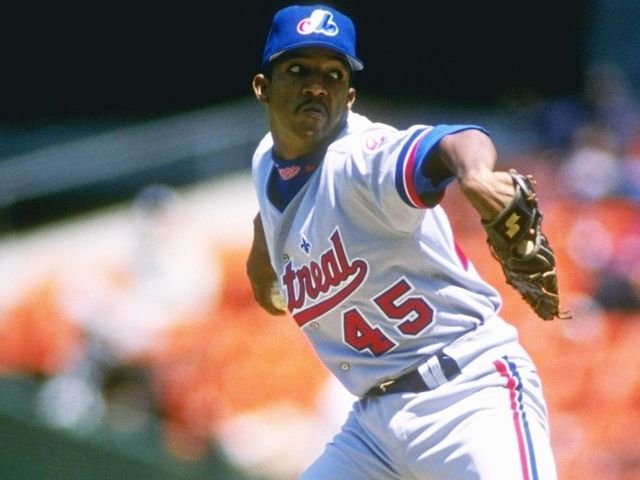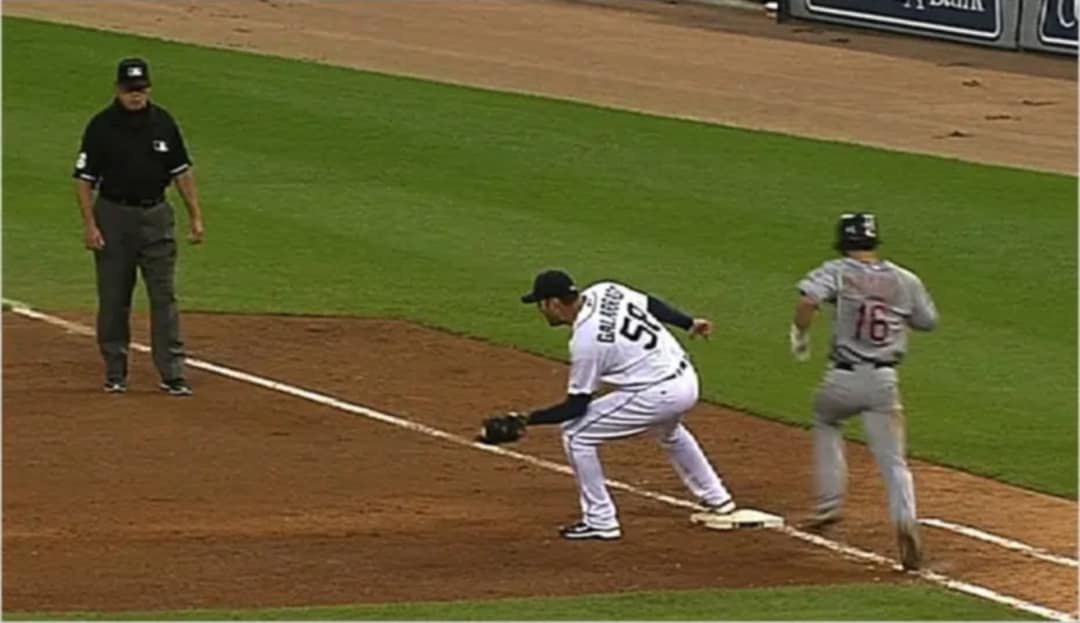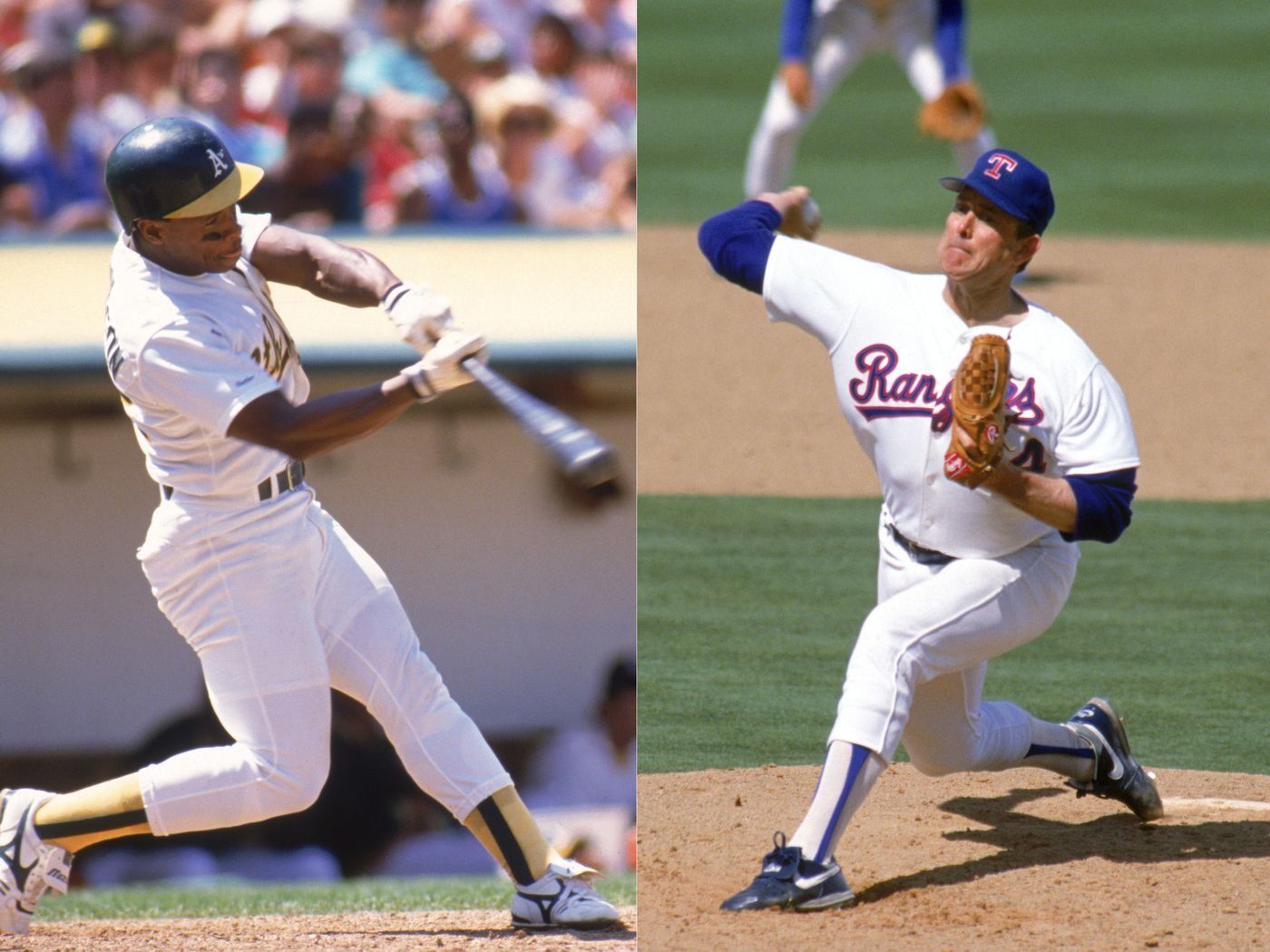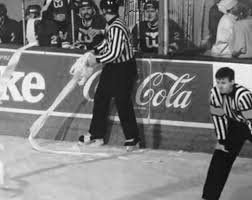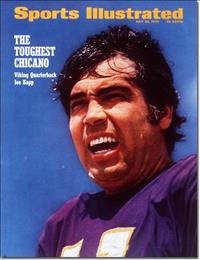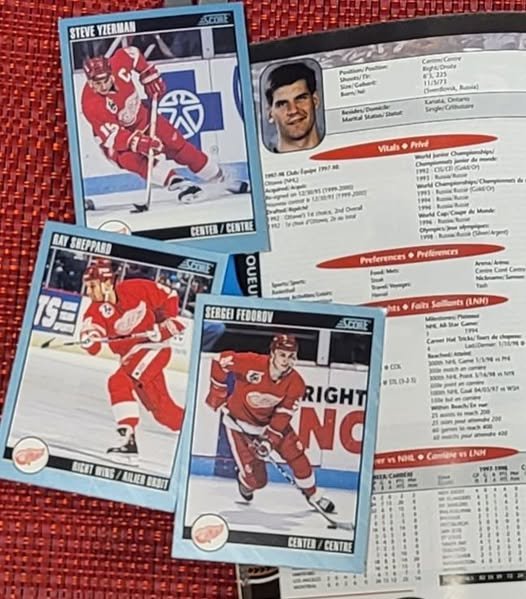by Howie Mooney
As sports fans, we sometimes lose sight of the fact that the athletes that we cheer for or that we root against are human beings. Each of them has a story as to how they got to where they were when they started their sporting journeys, or when they were at the height of it or how they were at the end of it. Sometimes the stories can be similar. Sometimes they can be unique and other times they can be downright wild.
As the days pass and my curiosity tries to maintain an even line on the meter, I find myself constantly reading and researching, looking for things that stand out. Recently, I came across an interesting fact. If we go over to baseballreference.com and we do a search of the first name ‘Aurelio’, only three names come up. Well, actually, four come up, but there were just three Aurelios who played major league baseball. The fourth played in the Negro National League from 1928 to 1930. That leaves us with just three men with the first name of Aurelio who played major league baseball in its entire history!
Further research shows something darker though. The earliest of the three men pitched in the American League in the 1960s. The second was an outstanding infielder from the late ‘60’s to the early ‘80s. And the third was largely a reliever – and once an All-Star – between the late ‘70’s and the late ‘80’s. And they all died before their time in accidents involving at least one automobile.
* * *
Aurelio Monteagudo was born in Cuba on November 19, 1943. His father, Rene, had been a pitcher who played for the Washington Senators for three seasons and finished his career with a season in Philadelphia with the Phillies. Fidel Castro came to power in Cuba on January 8, 1959. Soon after that, Aurelio’s family left Cuba so he could play baseball in Venezuela. He eventually caught the eye of scouts for the Kansas City Athletics.
He made his major league debut with the A’s against the White Sox in Chicago on September 1, 1963. He was 19 years old. He pitched a couple of innings in a 4-1 loss. He didn’t give up a hit, but he was charged with a run. Over the length of his career, his best pitch was his screwball. On May 17, 1966, he was traded to the Houston Astros. At the end of the 1966 campaign, he acquired Venezuelan citizenship. In July of 1967, he joined the Chicago White Sox. He played with the Kansas City Royals in 1970 and the California Angels in 1973.
Monteagudo’s season with the Royals began when he was called up in June of 1970. One of his teammates in Kansas City was the right-handed pitcher, Al Fitzmorris. Fitzmorris was an outfielder who was transformed into a pitcher when he was playing in the Royals’ minor league system. He and the Venezuelan pitcher formed a friendship.
“He was a good guy, very professional,” Fitzmorris told Ryan Fagan of The Sporting News. “Very much a gentleman. We called him ‘Monty’. I just remember him being a good teammate, very congratulatory when you did something good. It was my first full year, so I kinda stayed to myself a little bit. He gave me an opportunity to hang with somebody from another country, which is always interesting. He was one of the good guys.”
In playing for the Royals, he became part of a very small club – the group of guys who had played for both the Royals and the Kansas City Athletics – joining Moe Drabowsky, Dave Wickersham and Ken Sanders.
Over the course of seven seasons, Monteagudo pitched in 72 major league games. He started seven and came in as a reliever in 65 of them. He compiled a 3-7 record over 132 innings pitched. He recorded 58 strikeouts over that span. And while that may seem inconsequential to some, he got to play at the highest level of the game. But the United States wasn’t his only landing place.
While he played parts of seven seasons in the majors, he also played twenty seasons in the country of his chosen citizenship. Over that time in the Venezuelan Professional Baseball League, he played with Caracas from 1963 to 1968, he played part of the 1968 season with Magallanes, and then he played with La Guaira from the end of 1968 to 1974. In 1975, he played with Portuguesa and then went back to La Guaira from 1976 to 1982.
In 1970, Monteagubo was named the best pitcher in the Caribbean Series. On December 20, 1973, while pitching for La Guaira, he carried a no-hitter into the ninth inning against the Cardenales de Lara. Then, with two outs in the ninth inning and the no-no on the line, he gave up a single to Faustino Zabala and lost the bid at immortality.
While carrying his career in Venezuela, he also was throwing in the Mexican League. Over the course of his time in Mexico, he pitched for Puebla, Coahuila, Aguascalientes and Veracruz. On March 19, 1979, he fired a no-hitter against Nuevo Laredo. In 1978, he led the Mexican League in strikeouts. In 1981, he retired from pitching and became a successful manager in the league.
On November 10, 1990, Monteagudo was killed in Saltillo, Mexico, which is about three hours from the border with Eastern Texas, when the truck he was driving crossed the centre line and was demolished by a tractor-trailer. He was nine days away from his 47th birthday.
Aurelio was a money pitcher with his teams making the postseason in twelve of his twenty seasons. Five of them won championships. In 2009, he was inducted into the Venezuelan Baseball Hall of Fame. There, he can live forever.
* * *
Aurelio Rodriguez was born in Cananea, Sonora, Mexico on December 28, 1947. He began his baseball career in the Mexican League in 1965 and 1966. He was still classified as a first-year player in the top pro league there in 1966 with the Charros de Jalisco and was named the league’s Rookie of the Year that season. He played in 135 games at shortstop with Jalisco. He batted .302 with fifteen triples and 54 runs batted in. He was just 18 years old at the end of the 1966 season.
While he was collecting accolades down in Jalisco, there were eyes on him from north of the Rio Grande. Well, north and west. He signed a contract with the California Angels and made his debut with the big-league team in 1967, playing 29 games in Anaheim. He became a full-time major leaguer in 1969 when he played 159 games with the Angels.
But just seventeen games into the 1970 season, he and outfielder Rick Reichardt were traded to the Washington Senators for third baseman Ken McMullen. It was Reichardt who gave Rodriguez the nickname ‘Chi Chi’, like the golfer. Then almost immediately following that campaign, he was part of an eight-player deal that saw Rodriguez, outstanding defensive shortstop Ed Brinkman and pitchers Joe Coleman and Jim Hannan go to the Tigers in exchange for third baseman Don Wert, outfielder Elliott Maddox and pitchers Denny McLain and Norm McRae.
The trade stunned a few people. Ted Williams was the Washington manager at the time. His response to the team’s owner, Bob Short, when he was told that Rodriguez was traded was simple and to the point. “Oh no!”, was reportedly what Williams said. Rodriguez was surprised when he found out as well.
The player was already home in Mexico when he got a call from Senators’ catcher Paulino Casanova telling him about the trade. “You’re kidding,” Rodriguez told Casanova. The catcher assured him that it was true. “I’m surprised. Short told me I was going to be his third baseman for the next ten years.”
He was also somewhat upset that he would be losing the tutelage of the great Williams as well. “He’s a very good person and I like him very much. He help me a lot,” Rodriguez said in a United Press International story in March of 1971. “When I play for California, I swing at too many bad balls. Not with Washington. Ted Williams, all the time, he say to me, ‘no swing at bad balls…always look, look…wait and wait… I no forget what he tell me. Never.”
Rodriguez was just 22 years old at the time of the trade and he was joining his third major league team. He wanted to make a good impression on his new teammates and coaches in Detroit, and he might have been putting a little too much pressure on himself. He went hitless in his first seven plate appearances in spring training in 1971, but when he settled in, he got the bat going.
In a game late in March against the Boston Red Sox, Rodriguez was at the plate and his teammate Norm Cash was standing on first. Billy Martin was the Detroit manager, and he put the hit-and-run sign on. As Ken Tatum delivered his pitch to the Tigers’ third baseman, Cash broke for second, but Rodriguez fouled the pitch off. Martin kept the hit-and-run on. Again, Cash took off with the pitch. Rodriguez was focused on the ball. He swung and had a little ‘mustard’ in his swing. He hammered the ball and as it cleared the left-center field wall, his face wore a massive smile.
But then, according to people with the team at the time, he was smiling all the time. Hal Middlesworth was the team’s public relations director, and he gushed about Rodriguez. “He’s the most pleasant guy I’ve ever seen. Always smiling and always laughing.” His new teammates appreciated the player as well.
Brooks Robinson was widely accepted as the best third baseman in the game at the time. But there were guys on the Tigers who felt that Rodriguez could be as good as the Baltimore Orioles phenom. His Senators/Tigers’ teammate Brinkman thought that ‘Chi Chi’ might already be better than Robinson in some respects. “He runs better than Brooks and throws better. ‘Chi Chi’ could turn out to be a super player.” Paul Carey was the broadcast partner of the great Ernie Harwell and he referred to Rodriguez’ arm as a ‘howitzer’.
‘Chi Chi’ spent every year from 1971 to 1979 in Detroit with the Tigers. He was never an incredible hitter but defensively, he was outstanding. Rodriguez won the gold glove at third base in 1976. As the decade meandered toward its end though, the Tigers’ president, Jim Campbell, had become interested in trading his now aging third baseman. The only problem was that, in this new age of players’ rights and seniority rules, Rodriguez, having played in the majors for more than ten seasons, had the mutually negotiated and collectively bargained ability to veto any trade.
In early December of 1979, Campbell had arranged to trade Rodriguez to San Diego for a player to be named later. A few days earlier, Rodriguez spoke to Jim Hawkins of the Detroit Free Press. He liked Detroit and didn’t want to go somewhere else. He figured the call would inevitably come, but he was dreading receiving it.
“I don’t want to leave Detroit,” Rodriguez told Hawkins. “I want to stay there. I’ve got nine years with Detroit. All the people have been real nice to me there. Before I came back to Mexico at the end of the season, I told Jimmy (Campbell), ‘I want to play more than I did last year. What’s going to happen with me?’ But he said, ‘I don’t know anything about it right now.’ He didn’t tell me nothing.”
“They have definitely been unfair with me. And I don’t know why. Why me? Why does it have to be me who sits on the bench? Every time we get a new man, the new man does the same thing with me. Only me! Ralph Houk, Les Moss, Sparky…they all put me on the bench when they got the team. I don’t know the reason. I didn’t do nothing to them. Now we got Richie Hebner (as a third baseman). As soon as I saw that in the Mexico City paper, I said to my wife, ‘We don’t have a chance to stay there now.’”
His approval of a trade had some contingencies. “It will depend on what team I’d be going to. I’d want to go to a team where I am going to play a lot. And if I’m going to play with another team, I’m going to ask for more money too.” He had a feeling that his congeniality may have been a detriment to his success. “Maybe I’ve been too nice. Maybe they say, ‘Oh this guy won’t say nothing if we put him on the bench.’ But I’m not stupid. I know what’s going on. Maybe next year, I’m gonna pop off. I’m gonna say a lot of things. I’m gonna be like Ronnie (LeFlore). I’m gonna talk a lot.”
Rodriguez did accede to the trade to San Diego. But he didn’t stay there long. In August of 1980, his contract was purchased by the New York Yankees. He played in the Bronx until the end of the 1981 season. He was traded to the Toronto Blue Jays after that year. And then after spring training, the Jays dealt him to the South Side of Chicago. At the end of 1982, he became a free agent and signed with the Orioles. By the end of 1983, his major league career was over.
After his playing career, Rodriguez got into coaching and eventually became a manager in the Mexican League. He worked in a bunch of places over the 1980s and ‘90s like Los Mochis, Monterrey, Saltillo, Reynosa. He worked as a coach in the minor leagues in Colorado Springs and Toledo as well.
In September of 2000, he was visiting Detroit. He was there to attend a card show and sign autographs at the Gibraltar Trade Center. After that, he headed to southwest Detroit where he was beloved by the city’s Latino community. He went to the El Rancho restaurant with a couple of friends. Upon leaving the restaurant, he was struck by a car that drove through a red light and jumped the curb at the corner of Calvary and West Vernor.
According to a story in the Detroit Free Press, Rodriguez was thrown into the air and pinned under a nearby Subaru. People in the vicinity moved the car and removed the former player and he was taken to the Henry Ford Medical Center. He was pronounced dead there. One of Rodriguez’ friends, an unidentified woman, was taken to a different hospital and was said to be in serious condition.
“Everybody really loved him,” said state representative Belda Garza of Detroit, who happened to be shopping at a grocery store not far from where Rodriguez had been struck. “He was looked up to as a role model.” Alfonso Avila was a member of the family that owned El Rancho. He said that Rodriguez was well known in Detroit’s Latino community. “People would stop him all the time and say, ‘How ya doing?’ He was a celebrity in southwest Detroit.”
It came out later that the 40-year-old woman who was driving the car that hit Rodriguez and his friends may have been experiencing a seizure in the moments she drove up on to the curb. Her license had been suspended after she suffered a brain aneurysm in March of 1995. She was later charged with manslaughter with a motor vehicle, driving on a suspended license causing death and driving on a suspended license causing injury.
“He (Rodriguez) was a great guy, one of the nicest people you’ll ever meet,” Lance Parrish, who played the first three years of his career with Rodriguez and was a Tigers’ coach in 2000. “I didn’t play with him a long time, but it felt like I did. He was very outgoing, would do anything for anybody. And he was one of the best third basemen you’ll ever see.”
Jeff Jones was another Tigers’ coach at the time of Rodriguez’ death, and he grew up watching those Detroit teams when ‘Chi Chi’ was playing third base for them. “I remember how smooth he was at third, but mostly I remember what a great arm he had. Strong and accurate. Later, I got to know him when we coached together in the minors. He was a very helpful, friendly person.”
Sparky Anderson managed the Reds and Tigers, and he remembered Rodriguez well. “He was one of the true gentlemen of the game, and let me tell you, the only arm I’ve seen like his since at third is Travis Fryman’s. When I was in Cincinnati, we tried twice to trade for Aurelio, but we couldn’t get him.”
When Rodriguez arrived in the majors, he could barely speak English. The only thing he knew how order in a restaurant was “ham sandwich”. Over time, his ability to play third base and his charm and generous personality made him a beloved personality wherever he went, but especially in southwest Detroit.
* * *
Aurelio Lopez was born in Tecamachalco, in southeastern Mexico, on September 21, 1948. As a child, he enjoyed playing soccer and baseball, but he gravitated toward baseball because he had difficulty finding places on which to practice soccer near his home.
He seemed destined to play his entire life in Mexico as he was going back and forth between the top Mexican League and their minor league system. After toiling for about five years in that roller coaster and, as Jerry Izenberg put it in a piece in the Newark Star-Ledger in 1992, riding “the worst buses in Mexico” to some of the worst ball parks anywhere, he had a decision to make. He had his degree in Public Administration to fall back on, but he wanted to play baseball.
His wife, Celia, had been patient, but she could be excused if she was near the end of her rope living this itinerant life. He was pitching for a minor league team in Mexico City called Los Diablos Rojos, or Red Devils, and his manager called him into his office for a talk. He told Aurelio that this might be as far as Aurelio could go in the game but if he really wanted to keep playing, the manager would find a place for him to play.
Aurelio would eventually succeed and be discovered and make it to the major leagues. He felt that he was good enough. He convinced himself of that. Celia was at least a little skeptical though. Aurelio wanted to go to a town called Sahuayo to play baseball in the Mexican winter league. Sahuayo is in southwestern Mexico and, as some might think, was a faraway spot. Celia was pregnant at the time and not really anxious to venture there but, she decided to follow her husband, and she made the best of it.
She was surprised at how many friends she made there, and Aurelio found his fastball. He also figured out how to command it. In 1974, he had a taste of the major leagues when he got a start in eight appearances with the Kansas City Royals. Back up in the Mexican League in 1977, after discovering himself and his abilities, he compiled a 19-3 record, pitched to a 2.01 earned run average, notched 165 strikeouts in 157 innings and, despite being a closer, he was fifth in the league in wins. He saved thirty games and was named the league’s most valuable player.
He had been dubbed ‘El Buitre de Tecamachalco’ or ‘The Vulture of Tecamachalco’. His wonderful 1977 led to his contract being purchased by the St. Louis Cardinals. After a season with the Redbirds, he was traded to the Detroit Tigers. It was there that he started to blossom. He posted a record of 10-5 while pitching mostly out of the bullpen in 1979. His ERA of 2.41 combined with his 106 strikeouts in 127 innings and his 21 saves earned him enough votes in the Cy Young balloting to place him seventh.
Early on in his time in Detroit, he never really resembled an athlete. He was 6-foot-one and 255 pounds. His teammates didn’t really get the ‘Vulture’ vibe, and they pronounced him ‘El Gordo’ or ‘The Fat One’. But he sure could pitch so he was certainly valued by the guys he played with. He played in Detroit from 1979 to the end of 1985 and over that time, he went from being ‘The Fat One’ to ‘Senor Smoke’. In 1983, he played in the All-Star Game.
According to Izenberg, Lopez never forgot his time in Sahuayo. And the people there never forgot him either. After every season he spent playing in Detroit, he and Celia would go back to the town where he found that extraordinary fastball. The people of Sahuayo would roast an ox in honour of ‘El Buitre’ and his wife.
He had a lot of great moments as a Tiger but perhaps his greatest was in the final game of the 1984 World Series. That was a magical year in Motown as the team won 35 of their first 40 games and coasted to the American League East title. They swept the Royals in the championship series and were playing the San Diego Padres in the World Series.
It was October 14 and Detroit was leading the series three games to one. But the score was tied 3-3 in the fifth and the Padres’ Graig Nettles was on second with two out. Sparky Anderson decided to bring the righty Lopez to face the right-handed hitting Kurt Bevacqua. Lopez earned his ‘Senor Smoke’ nickname that night as he got Bevacqua to swing and miss on strike three and get out of the inning.
The Tigers took the lead for good in their next at bat. Lopez retired the next six Padres he faced on 24 pitches and gave way to Willie Hernandez after the seventh. Hernandez earned the save but Lopez got his second victory of the Series as Detroit won the game 8-4 and took the Commissioner’s Trophy. Lopez was 36 and this was, without a doubt, his finest moment.
The ox feast would taste so sweet when he and Celia went back to Sahuayo after the season.
In 1985, Lopez lost a little something on his fastball and as he was getting into his later 30s, his time in the Motor City was approaching its end. In 1986, he found himself in Houston with the Astros. He and Larry Andersen both worked out of the bullpen. Andersen remembered his old teammate.
“He and I were a lot the same that season,” Andersen told Jayne Custred and Neil Hohlfeld of the Houston Chronicle. “We joined the team after the start of the season, and both pitched middle relief. Plus, we both liked to have a laugh and keep things loose. He was a good man, one of those teammates I’ll really remember.”
He’d play in Houston for two seasons before it would all be over.
He returned home to Tecamachalco and would have been content to retire to a life of relaxation and solitude. But the people who knew him wanted more for him. And they wanted more for their poor village as well. The incumbent municipal president, which is similar to what we would think of as a mayor, was a man named Hidalgo. He and his family apparently ran the place like it was their personal fiefdom for the previous forty years or so.
People convinced Lopez to run against Hidalgo. “It wasn’t really my idea,” Lopez told the Free Press in 1991. “But the people asked me to do it, and I couldn’t say ‘no’. This is my home. You can never forget where you come from.” The campaign battle was contentious. At one point, gun shots were fired at Lopez’ home. He said it was the work of the Hidalgo family. But Lopez won and promptly worked on getting a water pipeline and irrigation infrastructure built for the village. He also wanted to pave roads and build a sports facility.
“They’ve shot at my house,” Lopez told Sports Illustrated back in 1991. “Originally, I didn’t want to run, but one day, the ex-mayor’s secretary came to see me. He told me that if I didn’t support their guy in the upcoming election, they were going to make my life difficult.” The Hidalgos had been nothing but a problem after Lopez was elected. “They have tried to block everything we’ve tried to do, but thanks to the opposition parties that have joined with me, we’ve been able to move forward.”
Lopez had a bodyguard who carried an Uzi machine gun and a .45-calibre pistol. Celia had the apt comment. “It never ends.”
In September of 1992, he had a little over five months left in his term in office. His plan was to head back to Detroit once he was done as municipal president. But first, he had to make a trip up to Nuevo Laredo, which was up north and close to the border of Mexico and East Texas. There was a report that he went up there to play a game for the Mexicali Eagles.
In any case, as Lopez, Celia and his bodyguard were returning home, they drove through a rainstorm. The reports differ as to whether they were traveling in a limousine or whether Aurelio was driving. In any case, the car skidded and flipped. Aurelio was thrown from the vehicle and was then crushed as it flipped on top of him. He was pronounced dead at the scene.
Celia and the bodyguard were injured. The accident happened outside of Matehuala, San Luis Potosi. Matehuala is about seven hours south of Nuevo Laredo and about nine and a half hours north and west of Tecamachalco.
Aurelio Lopez had turned 44 the day before the accident. His former teammates reflected on the man they knew as ‘Senor Smoke’. Former Tigers’ outfielder Chet Lemon talked about Lopez’ joviality. “He was a fun guy to be around. It’s sad. It’s hard to believe when something like this happens to someone you basically lived with during a season. 1984! That wasn’t that long ago. He was really doing well. He had gone back home and was giving something back.”
His former manager, Sparky Anderson, talked about Lopez’ abilities as a pitcher and also his issues with his weight. “He was our closer before Hernandez, but even after Willie got here, Lopez was our good-luck charm in 1984. Whenever we put him in the game, something good would happen. And in the World Series that year, he pitched about as good as person could.”
“Not long after we brought him up to the Tigers, I thought it might be a good idea for him to lose some weight. I told him to, and he did – about 25-30 pounds. And he couldn’t pitch for nothing. So, I told him to put the weight back on – he did, and he started pitching good again. He was a proud, sensitive man. Just a nice person.”
In 1993, Lopez was inducted into the Mexican Professional Baseball Hall of Fame. Javier Rodriguez Andrade wrote in a Spanish piece in Radio TK that Lopez was the pitcher with the highest velocity in Mexican baseball history. In Tecamachalco, there is a statue of Lopez in his Detroit Tigers uniform standing in commemoration of his life and career.
Over the course of his baseball life, Aurelio Lopez went from being El Buitre (The Vulture) to El Gordo (The Fat One) and finally he was nicknamed ‘Senor Smoke’. That last one is how so many remember him to this day. The set-up man and sometimes closer in his best days with that amazing Detroit Tigers’ World Series winning team.
* * *
So, there you have the stories of each of the only three ballplayers named Aurelio in major league baseball history. And given the fact that each of them perished in car accidents was certainly a wild circumstance, The Sporting News’ Ryan Fagan made an attempt to calculate the probability of something like this happening.
He reached out to his cousin Kevin who was an MIT graduate. Kevin reached out to one of his professors, David Geltner, who reacted quickly and in a tongue-in-cheek fashion. “I can tell you right now, it’s a mathematical impossibility. Hence, if it’s true, it proves that the universe does not really exist. We are all in someone’s dream…”
A couple of numbers came up. One model said the chances were 1 in 35 billion. Another said 1 in 42.6 billion. But Geltner ultimately figured that “random combinations of super-rare events – even bizarre ones such as the only three Aurelios to play Major League Baseball all dying as the result of a car accident – happen regularly, but nobody notices most of them.”
Kevin wrote back to Ryan, “completely random, nearly impossible combinations of events happen all the time, we just occasionally notice them and interpret them as unique. That’s why Geltner ultimately reconsidered the rarity of the storied fate of baseball’s only three Aurelios as ultimately NOT that rare.”
That may be true, but every time I’ve mentioned these three ballplayers and, ultimately, the way they all passed away to people, I get a similarly surprised and almost stunned reaction. Not that I was looking for that, but, hey, I’m just sayin’……
* * *
Howie’s latest book MORE Crazy Days & Wild Nights, eleven new stories of outlandish and wild events that occurred in sports over the last fifty years,is available on Amazon. It’s the follow-up to his first book of 2023, Crazy Days & Wild Nights! If you love sports and sports history, you need these books!
And watch for Howie’s latest book, The Consequences of Chance, to come out November 1 on Amazon!
You can hear Howie and his co-host Shawn Lavigne talk sports history on The Sports Lunatics Show, a sports history podcast, on Apple Podcasts, Spotify, iHeart Radio, TuneIn Radio and Google Podcasts and at firedupnetwork.ca on 212 different platforms. Check out The Sports Lunatics Show on YouTube too! Please like and subscribe so others can find their shows more easily after you. And check out all their great content at thesportslunatics.com.
The Sports Lunatics Show can now also be heard on Sundays at noon on CKDJ 107.9FM in Ottawa or online at ckdj.net .



